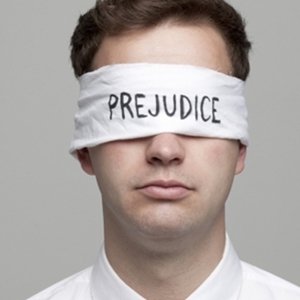Arranged vs Love Marriage : Which is biblical ? A question that is rarely discussed in Indian churches, yet it is the elephant in the room when it comes to the topic of marriage. Let us first understand these 2 approaches :
“Arranged” Marriage: An approach that relies purely on compatibility, not just compatibility of the individuals but also the compatibility of the families involved.
If it had to be summed up in an equation, this is what the essence of Arranged Marriage is:Same( religion + language + community ) + Similar ( Education + Social status + Financial status + Customs + appearance ) = Good Marriage.
Love is expected to be a natural by-product of this arrangement.
---------------
“Love” marriage: An approach that relies solely on falling in love. All other differences are considered insignificant as long as the two individuals are in love with each other.
First, lets take a look at one of the most quoted (or rather misquoted) arranged marriages in the Bible:
Isaac and Rebekah : Arranged Marriage
People who believe that the Bible advocates arranged marriage, often quote this story.
Genesis 24:3-4
“I want you to swear by the Lord, the God of heaven and the God of earth, that you will not get a wife for my son from the daughters of the Canaanites, among whom I am living, but will go to my country and my own relatives and get a wife for my son Isaac.”
It is true that Rebekah was confirmed by a sign, but within a few chapters we see that things didn’t stay perfect for long. It was a marriage where the husband and wife had their own favorite sons, to the point where the wife taught her favorite son to deceive his own father. In this particular story, Rebekah failed to honor her husband and Isaac also set a poor example as head of the family by picking favorites among his sons.
Clearly, the case for Arranged marriage can’t be so flawed/imperfect.
If one still supports Arranged marriage because Abraham did it, then it might be a good idea to pause and consider some of the other things that Abraham did as well 
Genesis 17:23
“On that very day Abraham took his son Ishmael and all those born in his household or bought with his money, every male in his household, and circumcised them, as God told him”
Jacob and Rachel : Love Marriage (Genesis 29)
Jacob was so madly & deeply in love with Rachel that he signed a 7 year bond with his father in law – TWICE ! And it only seemed like a few days to him because of his love for her (Gen 29:20). Soon we notice things getting bitter by the end of the chapter.
- Rachel threatens Jacob with suicide if she is unable to bear children (Gen 30:1)
- Rachel offers her servant for Jacob to bear children. (Gen 30:3)
- Rachel also trades her husband with Leah for a night, in exchange for a few mandrakes (Gen 30:15)
Some love marriage that was ! (Sometimes I find Jacob’s passive acceptance of Rachel’s offers quite suspicious!)
Both Arranged marriage and Love marriage approaches have failed to meet the promise of a good marriage. Rightfully so, because a good marriage NEVER entirely depends on the choosing approach! So to take a hardline stance on one of these approaches and hope it gives a good marriage is quite naive.
In fact, marriage is so complex that King Solomon tried it 700 times! (okay, that was a joke)
Ruth and Boaz
Groom’s profile: Reputed, Well-settled Israelite man
Bride’s profile: Moabite, New convert, widow, refugee
The local matchmaker in Bethlehem would not be very popular if he/she tried bringing these 2 individuals together. But when we look closer through the passages, we notice that both Ruth and Boaz showed some excellent qualities.
- Ruth’s confession of her faith in the God of the Israelites(Ruth 1:16). She was considerate towards her widowed mother-in-law. Was diligent at Boaz’s field.
- Boaz saw Ruth’s faith in the LORD (Ruth 2:12). Boaz affirmed his faith in the same God as well. Boaz didn’t rush into the marriage, but considered all legal and cultural steps involved.
Such an unlikely match by the society’s standards, but this was the family God chose to be the great grandparents of King David and 1300 yrs later, the Messiah himself was born in this family line!
The Bible does not advocate either “Arranged” marriage or “Love” marriage. However, it gives us several stories to help us make a good decision! One is free to choose either of the approaches, but there are a few points to remember in both approaches.
The Bible does not advocate either “Arranged” marriage or “Love” marriage. However, it gives us several stories to help us make a good decision! One is free to choose either of the approaches, but there are a few points to remember in both approaches.
Arranged Marriage:
- Always actively participate in the selection process
- Let faith and salvation be one of the first topics to discuss. Talk about this directly with the person.
- If family members judge a profile based on status, income, community/caste etc., correct them with grace and gentleness. They are doing this out of a good understanding of the world and a poor understanding of the Bible.
- Say a big NO to dowry, “gifts”, “custom” etc. No grace and gentleness needed here! This is a very shameful practice that even unbelievers are trying to stop.
Love Marriage:
- Do not make any promises in haste
- Let faith and salvation be one of the first topics to discuss
- Talk with mature, married believers about your choice
- If you see any undesirable qualities in the person and you feel that he/she will change after marriage……there is a 99.9999% chance that they won’t. Be prepared.
Remember, marriage was God’s idea even before man could think of it. So it is best, when we rely on Him.
“I will instruct you and teach you in the way you should go;
I will counsel you with my loving eye on you.” Psalm 32:8 (NIV)
I will counsel you with my loving eye on you.” Psalm 32:8 (NIV)
“Submit to one another out of reverence for Christ.” Ephesians 5:21 (NIV)
“He who finds a wife finds a good thing and obtains favor from the LORD.” Proverbs 18:22 (ESV)
“If any of you lacks wisdom, you should ask God, who gives generously to all without finding fault, and it will be given to you.” James 1:5(NIV)






